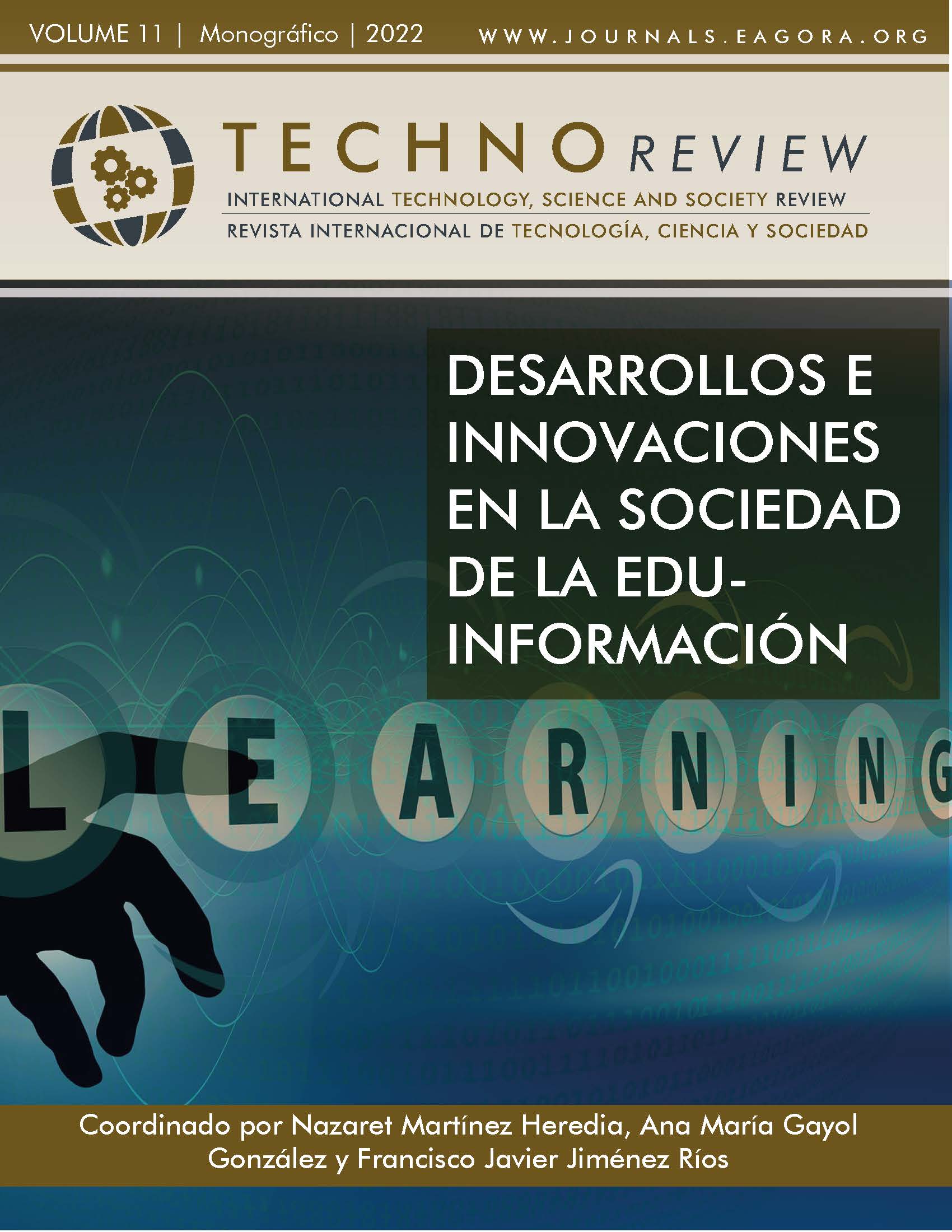Análisis de los “wikiproducers” como futuros líderes
DOI:
https://doi.org/10.37467/revtechno.v11.3801Palabras clave:
Tecnología, Educación, Negocios, Millennials, Generación Z, Universidad, Metodología disruptivaResumen
El perfil de los consumidores y de los futuros líderes empresariales comienza a asemejarse al de productores y expertos en marketing digital personal. El objetivo es conocer en qué medida se ajusta la formación actual a las expectativas de los Wikiproductores y determinar la relación entre las actitudes de estos líderes y los negocios del futuro. Es un estudio cualitativo a través de grupos de discusión con estudiantes universitarios y entrevistas en profundidad a altos directivos de empresas. Entre los resultados se observa la percepción de que la educación superior no responde a las necesidades de adaptación del mercado laboral.
Citas
Anderson, C. (2006). The long tail: Why the future of business is selling less of more. Hachette UK. Alcázar, P. (2011). Entre singles, dinkis, bobos y otras tribus. Grupo Planeta Spain.
Arce, G. (2015). The impact of the social nets on the Net Generation, Ph.D. Thesis. Universidad Alfonso X El Sabio (UAX).
Beahm, G. (2011). I, Steve (Steve Jobs insights). B2 books. Chicago Beckwith, H. (2011). Unthinking. Business Plus. Boston
Brack, J., & Kelly, K. (2012). Maximizing Millennials in the workplace. UNC Executive Development, 22(1), 2- 14.
Burstein, D. D. (2013). Fast future: How the millennial generation is shaping our world. Beacon Press.
Castells, M. (2010). La sociedad red: una visión global. Enl@ ce: revista venezolana de información, tecnología y conocimiento, 7(1), 139-141.
Celaya, J. (2010). La empresa en la Web 2. El impacto de las redes sociales y las nuevas formas de comunicación online en lnternet. Ediciones Gestion 2000
Dannar, P. R. (2013). Millennials: What they offer our organizations and how leaders can make sure they deliver. The Journal of Values-Based Leadership, 6(1), 3.
Don Tapscott & Anthony D. Williams: Wikinomics: How Mass Collaboration Changes Everything. International Journal of Communication, 2, 11.
Hart, S. L., & Milstein, M. B. (2003). Creating sustainable value. Academy of Management Perspectives, 17(2), 56-67.
Holliday, W., & Li, Q. (2004). Understanding the Millennials: updating our knowledge about students. Reference services review.
Kirkpatrick, D. (2011). The Facebook effect: The inside story of the company that is connecting the world. Simon and Schuster.
Kotler, P., Kartajaya, H., & Setiawan, I. (2019). Marketing 3.0: From products to customers to the human spirit. In Marketing wisdom (pp. 139-156). Springer, Singapore.
Maquiavelo, N. (2004). El Príncipe. Edimat Libros S.A. Madrid.
Martin, D. M., & Schouten, J. (2011). Sustainable marketing (p. 264). Pearson Prentice Hall.
McMillan, S. J., & Morrison, M. (2006). Coming of age with the internet: A qualitative exploration of how the internet has become an integral part of young people’s lives. New media & society, 8(1), 73-95.
McNamara, B. (2009). The skill gap: Will the future workplace become an abyss. Techniques, May 2009, 24- 27.
Meister, J. C., & Willyerd, K. (2010). Mentoring Millennials. Harvard business review, 88(5), 68-72.
Olcese, A., Rodríguez, M., & Alfaro, J. (2008). Gobierno y dirección de la empresa responsable y sostenible. En su: Manual de la Empresa Responsable y Sostenible. Conceptos y herramientas de la Responsabilidad Social Corporativa o de la Empresa (pp. 67-150).
Peters, T. J., & Waterman Jr, R. H. (2017). En busca de la excelencia. HarperCollins Espanol.
Prensky, M. (2006). Don't bother me, Mom, I'm learning!: how computer and video games are preparing your kids for 21st century success and how you can help!. St. Paul: Paragon house.
Prensky, M. (2001). Digital natives, digital immigrants part 1. On the horizon, 9(5),
Qualman, E. (2012). Socialnomics: How social media transforms the way we live and do business. John Wiley & Sons.
Sweeney, R. (2006). Millennial behaviors and demographics. Newark: New Jersey Institute of Technology, 12(3), 10.
Descargas
Publicado
Cómo citar
Número
Sección
Licencia
Aquellos autores/as que publiquen en esta revista, aceptan los términos siguientes:
- Los autores/as conservarán los derechos morales sobre la obra y cederán a la revista los derechos comerciales.
- Transcurrido un año desde su publicación, la versión del editor pasará a estar en acceso abierto en la web de la editorial, pero la revista mantendrá el copyright de la obra.
- En el caso de que los autores deseen asignar una licencia abierta Creative Commons (CC), podrán solicitarla escribiendo a publishing@eagora.org







